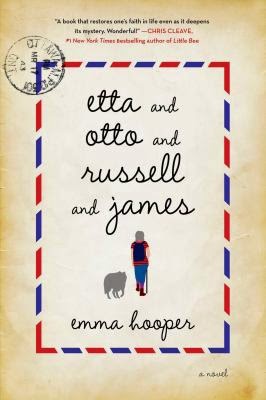Barkskins, the new, multi-generational epic by
Annie Proulx, won't be for everyone. For one thing, it's over 700 pages long and covers over 300 years of history, specifically the history of the de-nuding of the American landscape by woodchoppers (or barkskins) large and small, individual and corporate. Yes, it's a lengthy tale of the destruction of the great North American forests -- not exactly the feel-good read of the year. At the same time, it's brimming with vitality: lovely, lively writing; gorgeous descriptions of nature; wild and colorful characters. I loved it.
Barkskins opens with the 1697 arrival in New France (now Canada) of indentured servants Charles Duquet and René Sel, both indebted to the same boorish master. The two men quickly part, one dutifully working off his indenture and the other escaping into the woods before losing any more teeth to his master's crude dentistry pliers.
The novel proceeds to tell Duquet's and Sel's stories, following each man's line of descent through multiple generations. Start to finish, they all make their livings from the trees of the vast northern woods, widely considered to be inexhaustible.
René Sel marries into the Mi'kmaq tribe of Nova Scotia and through his line we see the fate of America's indigeneous people as white immigrant families flood into the new country, extirpating the wildlife and appropriating all the land, relentlessly chopping, burning, and laying waste to the woods
exactly as they had done in the countries they fled. Think
The Lorax writ large. Charles Duquet, he of the bad teeth, founds a timber dynasty, amassing enormous wealth and passing on his rapacious greed to his offspring.
Proulx's characters are rarely two-dimensional, never all good or all bad. A number are even quite sympathetic, and plenty of the rascals come to highly undesirable ends.
If you're into American history -- natural history, Native American history, the history of the timber industry, the settling of North America, the French and Indian Wars -- just to name a few areas, this may well be the book for you. Characters roam the globe as well, travelling to China, New Zealand, Europe, and other vividly-wrought locales. The novel is extremely well-researched and very well- written. It's a lively and rollicking tale, and, in parts, very funny. A live-wire herself, Proulx peppers the book with forceful, intelligent women. And as a added bonus, just by reading it, you'll compile an extensive list of the many graphic and gruesome ways people met untimely ends in the good old days.
~Ann, Adult Services











